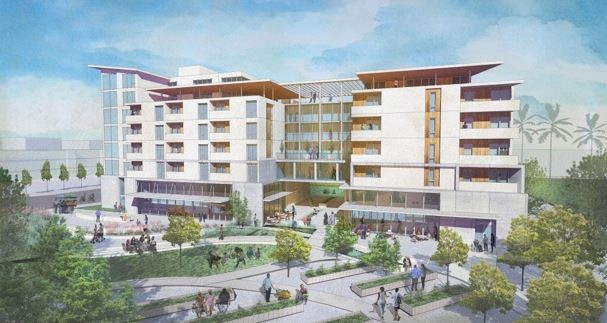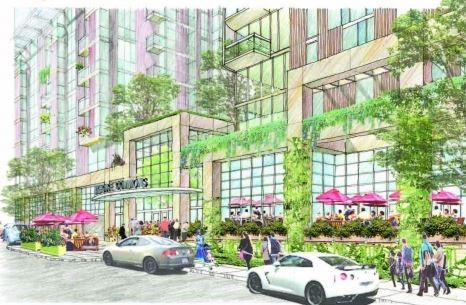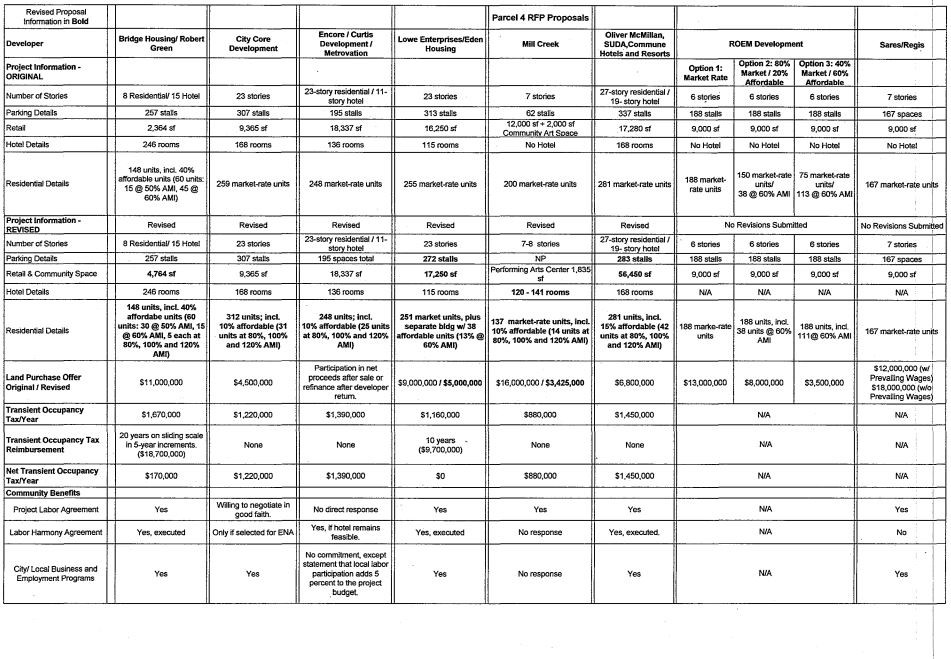
For the past several months, the Oakland City Council has been meeting in closed session to discuss proposals for how to develop the E. 12th Street Remainder Parcel, a one-acre swath of city-owned land near Lake Merritt that was once slated to become a luxury condo tower. A community coalition protested the deal, and last year the Oakland City Attorney’s office advised the city council, in a secret legal memo, that selling the land to the developer UrbanCore without requiring construction of any affordable housing would have violated the state Surplus Land Act. After the Express published this legal memo, the deal was scrapped. Since then, the city re-opened bidding on the land. Five developer teams are now competing to take control of the parcel. And all of them are required to build affordable housing on the site.
So who are the bidders, and what do their projects look like?
[jump] The city has refused to release the developers’ proposals because negotiations are ongoing. Almost all of the developers have also refused to make their plans public. However, the E. 12th Wishlist Design Team and Satellite Affordable Housing Development have made their plan public. They’re proposing to build a 133 unit apartment building with virtually all of the housing priced far below market rate. Approximately 80 percent of the building’s apartments would rent at a price affordable to people earning less than 50 percent of the area median income. This developer team includes many of the protesters who objected to the city’s original plan to sell the land to UrbanCore.

Hotel and Housing Uptown: In other housing and development news, on Tuesday the Community and Economic Development committee is expected to approve a deal with a team of developers who want to build a hotel, apartment building, parking garage, and retail stores on a giant empty lot in Uptown located at 1911 Telegraph Avenue, just across the street from the old Sears Building. The developer team is a joint venture led by Alan Dones and his Oakland-based company, Strategic Urban Development Alliance. Dones wants to build a 168 room “boutique” hotel, and 281-unit apartment building. Forty-two of the apartments would be marketed as affordable because their rents would target people whose incomes are between 80 and 120 percent of the area’s median income.
SUDA wasn’t the city’s initial pick to develop the site, however. Another team consisting of the hotel company Lowe Enterprises and the housing developer Eden Housing was city staff’s first choice. But the city council was unhappy with all of the project proposals submitted by the eight developer teams that bid on the land in the first round, so the council had the developers submit revised proposals, and SUDA’s was chosen instead. (See the table below comparing all the developers’ first and revised proposals.)
SUDA’s original plan had no affordable housing component, despite the fact that the land is public, city-owned real estate that used to be controlled by the Oakland Redevelopment Agency. In fact, only two of the eight developers that bid on the project originally had plans to include affordable housing on the site. One of these was Bridge Housing.
Bridge Housing and the Robert Green Company submitted a plan that would have purchased the land for $11 million. In addition to 88 market-rate apartments and a hotel, Bridge was proposing to build sixty units of affordable housing, with thirty of these targeting people who earn half the area’s average income.
By contrast, SUDA is only going to pay $6.8 million for the land, and its affordable units target people with substantially higher incomes. But the city appears to be valuing the ongoing hotel tax payments more than the price the land will fetch, or the amount of truly affordable housing that will be built. Under SUDA’s proposal, the city will likely collect $1.45 million each year in hotel taxes, while the Bridge Housing proposal would have only provided $170,000 a year in hotel taxes. Bridge planned to use the rest of the hotel tax money to finance the affordable housing.













